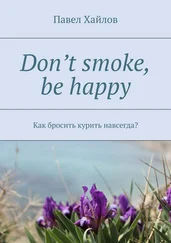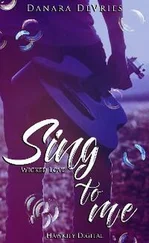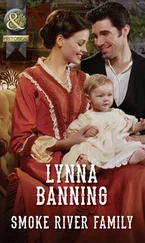“We better get there soon,” he says, wrapping himself into the blanket, and leaving Charlie to worry for his, Thomas’s, soul.
ф
It must be past ten when they arrive at their destination. It is hard to be sure. The station clock is not working; Thomas has no watch, and Charlie quickly realises that he has forgotten to wind his. Baron Naylor’s coachman welcomes them on the platform. He is tall, bearded, half frozen, and nervous; stands muffled into a greatcoat; insists on carrying their luggage, then sets it down again after a dozen steps.
“It’s too late now to harness the horses,” he explains, both in accusation and apology. “You were expected at three. Even then, the light would have been bad. It’s quite a ways, you see.”
“Then we’ll stay the night,” Charlie suggests reasonably.
The man nods, bends for their luggage, hesitates.
“There is no inn.”
“And the waiting room?”
“Locked.”
“Then where will we—”
The man sighs, picks up the suitcases again, leads them down the platform steps and across the station yard. Here the horse stables form two shabby rows, shielded from view of the travelling public by a high brick wall. No streetlamp lights their footing here, and as they make their way down the alley in near darkness, Charlie becomes eerily aware of the animal eyes looking down at him across the stable gates, his ears alert to the shifting of hooves and the sudden shakes of horses’ heads; the exhalations of hot air; the smacking of lips and meaty tongues. When a horse bares its teeth not a foot from his ear, they catch the little light there is: crooked, yellow teeth like stubby fingers, sticking out of colourless gums. Startled, Charlie stops. Thomas bumps into him, swears, then places a hand on his shoulder.
“Spooky, eh?”
“Just lost my footing,” says Charlie, thinking that this is what it must feel like to have a brother. An older one, willing to stick up for you in times of danger.
They arrive at a door that the coachman wedges open with some difficulty. Inside, the scene is lit by a single tallow candle. The room is tiny, smells of hay and horse. Three men sit propped up against the wall, smoking cheap little pipes; two others are stretched on the freezing ground under shabby blankets, resting, sleeping, or dead, it is impossible to say. Nobody speaks: not to welcome them, not to communicate with one another.
“The coachmen sleep here,” Baron Naylor’s man informs them. “I’m not supposed to— That is, gentlemen don’t usually come here.” He sets down their luggage on the little floor space there is, unwraps his scarf to free a throat marked by an old burn scar. “But I don’t know where else—”
“It’ll do,” Charlie says, and Thomas sits down wordlessly, then spreads his coat out underneath him. The room is so small that once Charlie has joined him, they lie wedged between the prostrate men and the smokers. Charlie’s face rests not an inch from the hand of a stranger. It is a large hand, with a tattoo in the wedge of skin between thumb and index finger, and knuckles blackened by either dirt or Soot. The tattoo is some sort of picture. Charlie cannot make it out until the hand spreads itself upon the wooden floorboards like an animal seeking purchase for a leap. A mermaid, bare-chested, smiling.
“We will freeze to death,” Thomas whispers next to him, only half joking, and closes the gap between their backs so their spines can pool their bony warmth.
They lie like that for half the night, strangers coughing around them, a mermaid dancing on dirty skin, her breasts shrivelling, expanding, winking with every twitch of the coachman’s mighty hand.
By dawn, the boys are so stiff, they have to support each other as they limp into the coach. They crawl onto padded benches and drift into a state more stupor than sleep.
ф
The coach ride has the texture of a dream: half a dozen impressions sewn together with no reference to time. They set off in twilight, amongst undulating hills; pit towers and smokestacks dotting the horizon. The sounds of travel seem to reach them through their skins as much as their ears, clot together into lumps of noise they are too tired to unpick: the churning of the muddy wheels, the crack of the coachman’s whip, the frightened whinny of the horse when it slips in a puddle. Once, Thomas wakes to see the ruin of a windmill studded with tiny birds: the sun at its back and the coach riding through its mile-long shadow. Then, the moments miles apart but adjacent in his consciousness, separated only by the closing of his eyes, they arrive. The coach halts before the long flank of a stone building painted dark by rain. A butler runs out, umbrella in hand, and escorts them the ten steps from coach to side door, gravel crunching under their feet.
“Delighted to see you have arrived, Mr. Argyle, Mr. Cooper. You will be hungry, I presume? If you’ll follow me to the breakfast room.”
At the mention of breakfast, Charlie’s stomach growls like an ill-used pet.
ф
They sit at breakfast. The room is large and formal, the tablecloth starched; the chairs high-backed and stiff; the cutlery elegant silver. The table seats ten, but the boys are the only ones in attendance. They perch shabbily — their clothes rumpled, their hair unkempt, their hands all too hastily washed — afraid they’ll stain the upholstery. The butler has left them. A door to their left admits kitchen smells but has not yet produced any food; cold heavy rain running down the glass veranda doors.
Then a serving girl arrives. She may be eighteen or nineteen; casts a glance at them from large, thick-lashed eyes before kneeling in front of the fireplace and setting to lighting it. She strikes a match, holds it to a scrap of newspaper already crumpled amongst the coals, repeats the action; cowers down, still on her knees, her chin now almost touching the floor, to blow into the hearth. The boys — dazed, blurry-eyed, travel-weary — feel they have no choice but to stare at her. At her bottom, to be precise. In this position, stuck in the air with most of the skirt’s fabric trapped under her knees, it is most awfully round. When a stomach growls (Thomas’s? Charlie’s again?), it sounds pleading, forlorn. And still the girl kneels, blowing at coals.
“I believe the fire is quite lit.”
They did not hear her enter. Thomas and Charlie move as one: reflections in a mirror. Both heads swivel; both faces fill with blood. Charlie’s blush is the darker. A redhead, he is, copper-skinned. To those of his complexion, nature is not kind. It’s like a different type of Smoke, marking a different type of sin. There is no chance at all that the lady does not notice.
For she is a lady, though she is no older than they. Not tall, but holding herself as to appear it, her long, plain dress cut almost like a habit. A small face: pale, rigid, self-possessed, cold.
And pretty.
Her lips are naturally very red.
“Come here, please,” she says, not to them but past them, at the cowering form of the servant.
The girl obeys with haste but no enthusiasm, her large eyes on Thomas, then the floor. Her blouse is tight over her chest, the skirt rides up a little where it has caught at the swell of her hips.
“It appears your clothes have shrunk in the wash.”
The young lady’s voice is neither cruel, nor loud, nor yet commanding. Notes of patient sadness underlie it; humility forced into action against its will. Next to the serving girl’s large, florid frame, she appears dainty, almost fragile.
An elf, Charlie thinks.
Thomas thinks: a nun.
“It would be better if you returned to scullery duties for the moment. Until you learn to be a little less obtrusive.”
“But Lady Naylor promised me—”
Читать дальше












